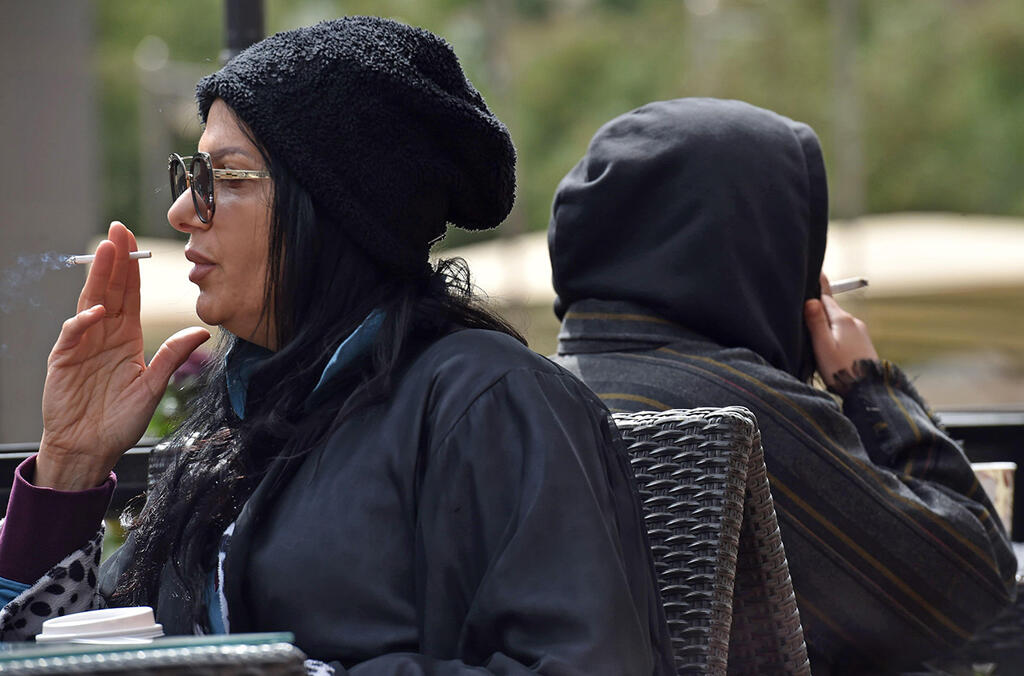Saturday marks five years since the Saudi government lifted its ban on women driving. Women’s rights have consistently improved in Saudi Arabia over the past five years, although significant barriers to women’s full participation in society remain.
Read more:
“As a Saudi woman who has lived—and continues to live—the realization of the vision, I can tell you that we are in a new era of a golden age in the kingdom,” cybersecurity expert Arwa Alhamad told The Media Line.
4 View gallery


Afnan Almarglani, the first Saudi woman to be certified as an autocross instructor, drives her car at Derab circuit in the capital Riyadh on June 26, 2022
(Photo: Fayez Nureldine/AFP via Getty Images)
She said that Saudi women are currently contributing to the country’s development in the fields of economics, politics, and science, among others.
“It warms my heart to see Saudi Arabia appointing its first female ambassador early on and launching its first female astronaut into space recently, along with the many precedents we witness daily,” she added.
In 2019, Saudi Arabia appointed Princess Reema bint Bandar as ambassador to the US, making her the kingdom’s first female ambassador. Saudi astronaut Rayyanah Barnawi became the first Arab woman in space in May 2023 when she served as a mission specialist on the Axiom Mission 2 spaceflight to the International Space Station.
Despite these firsts, Saudi women still have a long way to go to achieve equality.
“I believe challenges still exist and the government has taken them into account and is effectively overcoming them,” Alhamad said.
She noted that the Saudi government is working on developing more women in leadership in different fields.
International human rights organizations say that the steps being taken by Saudi Arabia may not be enough to ensure women’s equality.
“Despite recent reforms, women in Saudi Arabia still live under an inherently discriminatory system,” Dana Ahmed, a Middle East researcher for Amnesty International, told The Media Line.
She cited Saudi Arabia’s new Personal Status Law as an example of the systematic nature of discrimination against women in the kingdom. The law, which was passed in March 2022, “codifies many of the informal yet widespread problematic practices inherent in the male guardianship system and entrenches a system of gender-based discrimination in most aspects of family life, including in marriage, divorce, and child custody,” she said.
She gave as an example the law’s mandate that women obtain a male guardian’s permission to marry and that they obey their husbands once married.
“While Saudi Arabia has indeed eliminated some of the restrictions imposed through the male guardianship system and lifted the driving ban, the authorities failed to abolish the male guardianship system in its entirety and instead codified it in a written law, undermining these modest gains,” she said.
Even after lifting the driving ban, Saudi Arabia has imprisoned women for peacefully protesting in support of women’s rights and imposed travel bans on those women after their release, Ahmed said. The most prominent example is Saudi women’s rights activist Loujain al-Hathloul, who was arrested in May 2018 for her role in the “women to drive” movement, only one month before the ban on women’s driving was overturned. She was held in prison until 2021 and still lives under a travel ban even following her release.
“We have mostly seen societal reforms, rather than human rights reforms that aim to afford women basic rights,” Ahmed said.
Alhamad said that the Saudi leadership recognizes that there remains room for improvement. The crown prince has acknowledged that the rights currently afforded to women in Saudi Arabia are not exhaustive of the rights available to women according to Islamic law, she said.
“We always take a moment and pause to reassess the situation, understand the new challenges, and improve our direction based on the new context,” Alhamad said.
But some human rights activists say that this piecemeal approach to improving women’s rights is not enough.
“Saudi authorities should amend the Personal Status Law and repeal provisions that discriminate against women, including those related to the male guardianship system,” Ahmed said. She added that the kingdom must ensure that women and men have equal rights and responsibilities regarding marriage, divorce, custody, and parental guardianship.
She noted that limitations on freedom of expression prevent women from speaking out about challenges they are facing relating to the restrictive Personal Status Law. The kingdom “criminalizes any speech … deemed threatening to the reforms narrative of the authorities,” she said.
First published: 12:06, 06.27.23




